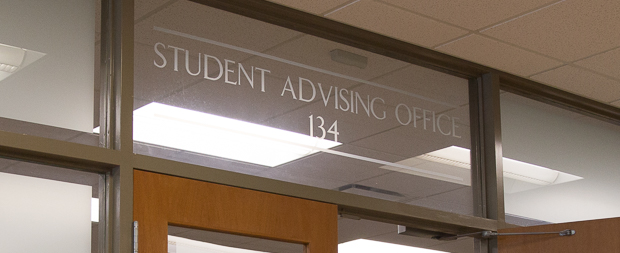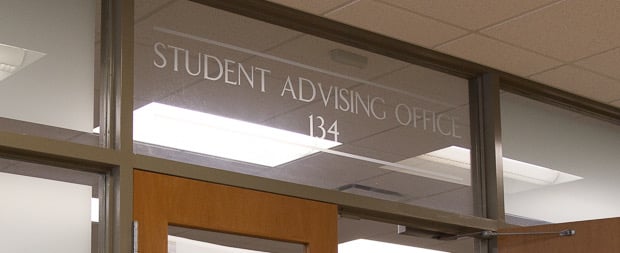Elementary Education
- Students with fewer than 56 credits may change their major to Education; however, students with 40-55 credits must meet with an Education advisor first.
- Students must apply and be admitted to the teacher preparation program to remain in the Education major after 56 credits. Students with more than 28 credits are eligible to apply for admission. Students who do not apply or cannot be admitted to the teacher preparation program when they reach 56 credits must change out of the Education major. Students in other majors who apply and are admitted to the teacher preparation program will have their majors changed to Education as part of the admission process.
- If you are seeking a major change to something other than Elementary Education, please visit the website of that college to learn more about the process. If you wish to change your major to Exploratory Preference, or if you wish to discuss major options, please visit a Neighborhood Engagement Center for guidance.
Kinesiology
- Students with fewer than 40 credits and a cumulative GPA of at least 2.0 may change their major to Kinesiology.
- Students with 40-55 credits and/or a cumulative GPA below 2.0 must meet with a Kinesiology advisor before changing into the major.
- Students with more than 55 credits must meet admission requirements to remain in the Kinesiology major or change into the major. Students who are not admissible when they reach 56 credits must change out of the Kinesiology major.
- Students with more than 56 credits who have met admission requirements must complete a major change request.
- If you are seeking a major change to something other than Kinesiology, please visit the website of that college to learn more about the process. If you wish to change your major to Exploratory Preference, or if you wish to discuss major options, please visit a Neighborhood Engagement Center for guidance.
Special Education
- Students with fewer than 56 credits may change their major to Education; however, students with 40-55 credits must meet with a Special Education advisor first.
- Students must apply and be admitted to the teacher preparation program to remain in the Special Education major after 56 credits. Students with more than 28 credits are eligible to apply for admission. Students who do not apply or cannot be admitted to the teacher preparation program when they reach 56 credits must change out of the Special Education major. Students in other majors who apply and are admitted to the teacher preparation program will have their majors changed to Special Education as part of the admission process.
- If you are seeking a major change to something other than Special Education, please visit the website of that college to learn more about the process. If you wish to change your major to Exploratory Preference, or if you wish to discuss major options, please visit a Neighborhood Engagement Center for guidance.
Secondary Education
- Students pursuing teacher certification at the secondary (high school) level earn degrees in the departments/colleges of their teaching major (e.g., biology, French, music). To become certified, students must apply and be accepted for admission to the Teacher Preparation Program. Students with more than 28 credits are eligible to apply.
Administrative Actions
Looking for the Undergrad Associate/Assistant Dean in Your College?
If you need help with administrative issues related to university policies and procedures (for example, a Grief Absence request) and you’ve been referred to your Associate/Assistant Dean or “Academic Dean,” please contact Kristy Chene, the director of Undergraduate Student Affairs in the College of Education.
Medical Withdrawal
If you’ve been referred to the Associate/Assistant Dean in your college because you wish to request a medical withdrawal, please contact the Director of Undergraduate Student Affairs, Kristy Chene.
Academic Advising
What is academic advising?
Academic advising is at the heart of student success. An advising appointment might involve any or all of the following, as well as a variety of other topics:
- Exploring degree majors and careers
- Understanding your degree requirements
- Using sample four-year plans to develop your individual program of study
- Learning to use enrollment and degree navigation tools
- Selecting courses; choosing the right course combinations
- Developing strategies for academic success
- Recovering from academic setbacks
- Learning to use MSU resources to support your personal well-being and academic success
- Selecting cognates and minors or teaching majors and minors
- Checking to be sure you’re ready to graduate when that time comes
- Learning about all that MSU has to offer
Scheduling advising appointments
College of Education advisors open new appointments every Friday and schedule out two weeks at a time. Schedules can fill quickly, especially during open enrollment. Be sure to schedule well in advance of your enrollment date.
In addition to scheduled appointments, advisors see students during scheduled drop-in advising hours.
Need to schedule an appointment?
- Login into the scheduling system with your NetID and password (Note that you will be required to set up two-factor authentication to sign in)
- Select the Academic Progress tile
- Click the tab on the left, labeled Advising/Tutoring Appointments
- Click Create New Appointment in the upper right corner
- Category: choose Advising
- Advising/Tutoring Unit: select College of Education
- Appointment Reason: click on the search magnifier icon to select from the choices given
- Additional Information: include further details to help the advisor prepare for your appointment (required)
- Appointment Type: select Zoom, phone, or in-person
- Click on Select Advisor
- Click the Time Selected drop-down menu to view available times
- Click on Select Time to confirm the appointment
- Click "Book It!”
If you need clarification, please visit the SIS Help page.
Need to cancel an appointment?
- Login into scheduling system (Note that you will be required to set up two-factor authentication in order to sign in) and password
- Select the Academic Progress tile
- Click the tab on the left, labeled Advising/Tutoring Appointment
- Under My Appointments, select the appointment you want to cancel
- Scroll down and click Cancel Appointment
Appointments for non-MSU students (including high school students, prospective transfer students, and prospective post-bachelor’s degree students) can be scheduled by calling 517 353 9680.
What is peer academic advising?
Peer advising is about students helping students. Peer Advisors receive extensive training and are able to assist with major/minor selection, admission requirements, resource referrals, and general advising questions. All Peer Advisors are trained to advise students in kinesiology and athletic training, as well as elementary, secondary, and special education (so you can schedule with any of them).
Scheduling peer academic advising appointments
Peer advisors work with students during peer advising drop-in hours – listed below under Drop-In Virtual Advising.
Advising Tools: Preparing for advising meetings
- You should meet with an advisor every semester. You’ll get the most out of the meeting if you come prepared to actively participate. Review degree requirements, create a list of questions, and use a sample four-year plan (see below) for your major to create a preliminary schedule before your visit. Although advisors are eager to help, students are ultimately responsible for understanding and fulfilling degree requirements.
- Keep a folder with information from your advising appointment so you can refer to it later; take the folder to your next advising appointment.
- Make use of college and university tools to understand and plan your academic program; for example use:
Advising Guides
Additional Resources
Advising for Honors College students
The Honors College Advisors for students in Kinesiology and Athletic Training are Latisha Hurd, Justin Wolfe, Jennifer Watson, and Liz Andrews.
The Honors College Advisors for students in Education and Special Education are Michael Haslett, and Abby Johnson.
Advising for student-athletes
Advisors for student-athletes in Kinesiology are Latisha Hurd and Liz Andrews.
Advisors for student-athletes in Education and Special Education is Michael Haslett.
Advising for secondary education students
All Education/Special Education advisors are available to advise secondary education students and prospective secondary education students about the teacher preparation program (including admission requirements, the application process, course requirements, the internship year, etc.). Secondary education students (and prospective secondary education students) should consult an advisor in their secondary major about degree requirements.
Advising for prospective transfer students
Students interested in transferring to MSU from another institution should contact the MSU Office of Admissions for general admission information as well as more specific information about transferring to MSU. The Office of Admissions reviews all transfer student applications and processes admission to all MSU majors. Want to learn more?
- Find information about transferring to MSU as
- An Athletic Training major
- An Education major
- A Kinesiology major or
- A Special Education major
- In addition, prospective transfer students are encouraged to use Transfer MSU to find MSU equivalencies for courses completed at other institutions.
- College of Education advisors are happy to meet with prospective transfer students. Please call 517 353 9680 to schedule an appointment with an advisor in your intended major.
Degree requirements for the B.S. in Athletic Training
Degree requirements for the B.A. in Education
Degree requirements for the B.S. in Kinesiology
Degree requirements for the B.A. in Special Education
Advising for high school students and their families
High school students interested in admission to MSU should contact the MSU Office of Admissions for information and a link to the online application. The Office of Admissions reviews all undergraduate student applications and processes admission to majors on a rolling basis. Early application is recommended.
There are opportunities throughout the year to tour campus, attend special admission events and/or meet with college advisors to discuss the majors you are considering. Visit the Office of Admissions for campus visit options and registration information. College of Education academic advisors offer informational meetings for high school students and their families on designated days each semester. Select the College of Education to see specific days and times.
Advising for prospective post-bachelor’s degree students interested in initial teacher certification
The College of Education offers a route to initial teacher certification for individuals who have already earned a bachelor’s degree. Depending on your background and what you wish to teach, the program takes 2-3 years, including the teaching internship year. Learn more about the Post-Bachelor’s certification program and admission requirements then call 517 353 9680 to schedule an appointment with an advisor.
Advising for teachers adding endorsements to an existing certificate
Teachers interested in adding new endorsements to their teaching certificates should email the Certification Office for information.
Admission to College of Education Undergraduate Majors
Finding Your Purpose and Exploring Careers
The College of Education offers the services of professional career consultants and trained career peer advisors through the Career Services Network. Learn more on the college’s career services site.
Opportunities for Engagement at MSU
Employers and graduate admission committees are looking for students/graduates who’ve developed skills that transcend majors; skills like problem-solving, self-management, critical thinking, verbal and written communication, team building, time-management, and dependability. Activities outside the classroom offer opportunities to develop those “transferrable” skills.
Student Organizations
Joining a student organization is a great way to meet new people, learn more about a major or career, develop leadership skills, improve your resume, and help others in the Spartan tradition. With more than 700 registered student organizations at MSU, there’s something for everyone. Many students enjoy organizations related to their major; check out student organizations in the College of Education.
Education Abroad (aka Study Abroad)
It’s possible to complete integrative studies requirements, degree major requirements, and elective courses all over the globe! There are also opportunities for international research and service projects. MSU administers over 275 programs worldwide each year, with some Study Away options available in the United States. Want to learn more?
Undergraduate Research
Learn about opportunities to get involved in research at the MSU and beyond! Check out the University Undergraduate Research and Arts Forum (UURAF) in which nearly a thousand undergrad researchers from across campus present their work. Learn about student research opportunities within the College of Education. Kinesiology students may be particularly interested in student research opportunities within the Department of Kinesiology.
Internships
Gain exposure to a major or a career, develop on-the-job skills, and improve your resume through hands-on experience. Learn about internship opportunities on Handshake, talk with your advisor about internship requirements for your major, and visit a career consultant and/or career peer advisors to discuss options.
Being a Spartan Means Helping Others
Do something good for others while also learning more about the world, developing transferrable skills, and improving your resume. Use the MSU Center for Community Engaged Learning resources or reach out to specific organizations to seek volunteer opportunities.
Resources
- Kinesiology
- Teacher Preparation Program
- News and Information: ED-Connect (Blog)
- Career Advice from Alumni for Future Teachers: Why I Teach
Scholarships
The MSU Office of Financial Aid provides information about scholarships.
In addition, there are undergraduate scholarship opportunities in the College of Education.
Pre-Health Advising
Pre-Health Advisors do not replace advisors in your major. These advisors serve as an additional resource for students seeking admission to post-graduate programs in health-related fields. The MSU Pre-Health website is an excellent source of information about career options, graduate program selection, prerequisite admission requirements, the application process, admission test preparation, suggested elective courses, related student organizations, and co-curricular activities. Pre-Health Advisors are housed in the College of Natural Science but work with students in all majors.
Find dates and complete information about MSU’s fall and spring/summer commencement ceremonies.
Teacher Certification
Find information about teacher certification, email the Certification Specialist or call 517 353 9680.
Student Advising Office
620 Farm Lane, 134 Erickson Hall
Michigan State University
East Lansing, MI 48824
(517) 353 9680
(517) 432 2718 (fax)
CED.SAO@msu.edu
Student Advising Office Hours
Monday-Thursday 8:00 AM-Noon; 1:00-5:00 PM – in-person and virtual services available
Friday 8:00 AM-Noon; 1:00-5:00 PM – virtual services only





